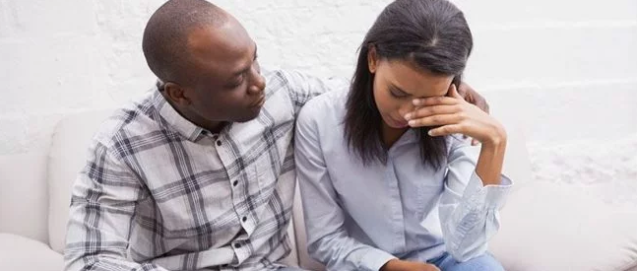How to show support to someone who's lost a baby
)
Lanai, one of the contributors from Nigeria, narrated a heartbreaking miscarriage. Her circumstances were made worse by the professionals who could have made it better. In her words,
“Coping with my miscarriage was traumatic. The medical staff contributed a lot to my grief, despite the fact that I am a doctor too. They put my first baby in a plastic bag and left it beside my bed – thinking it was my sanitary equipment I picked it up, only to see my baby.”
How Do People Respond To Miscarriages in Nigeria

You might assume that this is restricted to the incompetence of the medical staff. But, you would be wrong. In Nigeria, children are not just currency. They are equally a scale of measurement. You are not considered a complete woman except you are married and have children.
This culture is so pervasive in our society that when a woman loses her baby, she is blamed for it. People assume that is an act of God against you for an unknown or assumed crime. Women are often subjected to religious deliverance sessions and traditional rituals o cleanse them from the phantom causing them to miscarry.
There is also the case of doctors who do not take their patients complaints seriously. A source narrated how her sister in law's concern that she was leaking amniotic fluid was dismissed by her doctors as urine. Eventually, she had a premature baby at 27 weeks.
The cultural perception that women are to blame for their miscarriage needs to be wiped. Consequently, it affects the healthcare system. This is because its the same members of society who are players in the system.
How to change the response towards miscarriages in Nigeria?

In a study carried out in the United States, most women who suffer miscarriages feel guilty despite being a situation out of their control. What they require at this time is a load of support. However, to create a more empathetic response to them, there are practical steps that can be taken.
- Sensitization of medical staff
When Lanai got better, she called the nurses and sensitised them on the psychological trauma they put her through. However, this privilege was possible because she's a doctor. Hospitals should organize seminars to sensitise staff on how to take care of women who have just suffered a miscarriage.
- Take mental health Seriously
We do not take mental health seriously in Nigeria. This should change and we should acknowledge the psychological and emotional trauma these women experience.
- Show support
There are ways to show support to someone who has had a miscarriage. The days after, your presence would be appreciated. They need to hear comforting words. Words that reinforce that what is happening isn't their fault.
Conclusion
The loss of a baby is not a pain that completely goes away. However, time can make it bearable. In addition, the sensitivity and support of family and healthcare providers at this time would be very vital.
This article was first published on AfricaParent.com
)
)
![The health benefits of ginger and garlic are unbelievable [Food NDTV]](https://image.api.sportal365.com/process/smp-images-production/pulse.ng/01082024/200694f2-3977-47a4-a142-89c80fe6766e?operations=autocrop(236:157))
)
![10 countries where prostitution is legal. [Source - scoop]](https://image.api.sportal365.com/process/smp-images-production/pulse.ng/31072024/5eda0369-74f6-4a3b-82f7-d7dab249c8ac?operations=autocrop(236:157))
![Tribal marks of Nigerian people and what they mean. [guardian]](https://image.api.sportal365.com/process/smp-images-production/pulse.ng/01082024/45e8c254-ebf2-4262-b639-c83e8b56a32e?operations=autocrop(236:157))
)
)
)
)
)
)
)
)
)
)